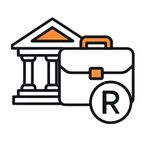
Deciding whether to take out a loan in September depends on more than just interest rates. With South Africa’s borrowing environment showing signs of stability, this month could present favourable conditions for certain types of credit. If you’re planning a major expense or need urgent funds, it’s worth understanding whether now is the right time to apply.
Key Takeaways
- September Can Be a Strategic Time to Borrow: Interest rates are currently stable, with the repo rate at 7.25% and prime lending at 10.75%. Borrowing during this period may be advantageous, especially if further rate cuts occur later in the year.
- Understanding the Loan Type Matters: There are different loan options available in South Africa, including home loans, personal loans, business loans, and car finance. Each loan type serves a specific purpose and has distinct repayment structures and approval requirements.
- Prepare Before You Apply: Before applying, it’s essential to check your credit report, assess your affordability, maintain consistent debt repayments, and ensure a stable income. These steps improve your chances of approval and help you manage repayments responsibly.
What Is a Loan?
A loan refers to a formal financial agreement between a borrower and a lender in which money is provided upfront with the understanding that it will be repaid over time. Loans come in different forms, ranging from short-term credit arrangements, which may be settled over several weeks or months, to long-term financial commitments such as a home loan, which is typically repaid over a period of around 20 years.
When used responsibly, a loan can provide access to funds that you may not have readily available, allowing you to cover necessary expenses without delay. However, this benefit comes with a cost. You are entering into an obligation to repay the borrowed amount through monthly repayments that include interest charges, meaning that you will pay back more than the original loan amount over the full term.
About Arcadia Finance
Get the right loan with ease via Arcadia Finance. Access 19 NCR-registered lenders, skip the fees, and enjoy a quick, dependable process.
Types Of Loans
Borrowing money is a common financial decision that may be required for various reasons, such as covering the cost of tertiary education or launching a new business. There are several types of loans available, and each one is designed to meet specific financial needs. Understanding the differences between loan types helps you choose the most suitable option for your circumstances.

Home Loans
Purchasing property represents one of the most significant financial commitments most South Africans will make. A home loan, also referred to as a mortgage, is a type of credit granted by home loan providers where the property being bought serves as collateral in case the borrower is unable to meet the monthly repayments.
Before applying for a home loan, it is advisable to assess your financial position thoroughly. This includes settling any existing debts and reviewing your monthly obligations to ensure you can meet future repayments. Many lenders provide guidance through bond originators or consultants who can assist with affordability assessments and repayment calculations.

Personal Loans
Personal loans are widely offered by banks and other credit providers and are frequently used to fund large once-off purchases or unexpected expenses that cannot be covered by regular income. One of their main advantages is that they often carry lower interest rates than credit cards, making them a more affordable option for short-term borrowing.
These loans are unsecured, which means you do not need to offer any form of collateral such as a vehicle or property. The loan amounts typically range up to R200 000, with repayment periods extending from two to five years depending on the lender and your financial profile.

Business Loans
Business loans are tailored to cover the funding needs of enterprises, whether for launching a new venture, acquiring stock, or expanding operations. In order to apply for a business loan, your company must meet certain eligibility criteria, which vary between lenders. It is important to understand these conditions before applying, as they can affect your loan approval chances.
Borrowers can choose between secured loans, which require business assets as security, or unsecured loans that do not require collateral. Interest may be charged at a fixed or variable rate, and repayment terms can range from six months up to 25 years, depending on the type of loan and the financial institution.

Car Loans
Car loans, also referred to as vehicle finance, are designed to assist with the purchase of a new or used car. Lenders offer various financing structures, each with its own repayment schedule and interest rate terms. One of the most common forms is a hire purchase agreement, where you pay a monthly instalment to the car finance provider. This arrangement typically requires an upfront deposit, which affects the size of the monthly repayments.
Other ways to finance a vehicle include using a personal loan or opting for a personal contract purchase (PCP). With a PCP, you do not pay the full value of the car as new. Instead, you repay an amount based on the estimated depreciation of the vehicle by the end of the contract period.
Should South Africans Borrow in September?
September could be a practical time to consider borrowing, especially given that interest rates have remained stable following the Reserve Bank’s most recent rate cut. While the repo rate currently sits at 7.25%, with the prime lending rate at 10.75%, many financial analysts suggest that further reductions may still be on the table later in the year. This is largely dependent on inflation staying within target and the economy continuing to grow, even at a modest pace.
Why September Could Be a Suitable Month to Borrow
- Borrowing costs are currently steady, which helps with planning and budgeting around future repayments.
- Lenders are expected to maintain current interest rates for the time being, making it less likely that borrowers will be caught off guard by any sudden increases.
- If your financial situation already supports borrowing, September offers a predictable lending environment, which can be preferable to waiting for uncertain rate adjustments later.
Why You Might Consider Waiting
- Some borrowers may prefer to hold off until there is clearer guidance from the Reserve Bank about future rate decisions, especially if the goal is to secure the lowest possible cost of borrowing.
- If your personal financial outlook is likely to improve over the next few months, for example through increased income or a better credit score, waiting could result in more favourable loan terms and possibly lower monthly repayments.
What You Should Do Before Applying for a Loan
| Step | Description |
|---|---|
| Review Your Credit Report Thoroughly | Your loan application may be declined immediately if your credit report indicates that you are currently under debt review. Many South Africans are unaware that this flag may appear on their report without their knowledge, which is why it’s vital to check your status beforehand. |
| Evaluate Your Affordability Honestly | According to the National Credit Regulator, lenders in South Africa are only permitted to approve loans if the applicant can reasonably repay the loan amount. Each lender applies its own formula, but the basic principle remains consistent. Affordability is usually based on several key factors: Debt-to-Income Ratio: This measures how much of your income remains after settling your existing debts and essential living costs. Lenders assess whether you have enough leftover income to handle a new repayment obligation. Risk Profile and Credit Behaviour: Banks will examine your credit record to see whether you’ve kept up with your existing debt commitments. If you’ve been missing payments or paying late, this will reduce your credit score, making it harder to qualify for new loans. It’s also worth noting that different credit bureaus in South Africa may hold varying versions of your credit score, which could influence how a lender views your risk. Interest Rates Relative to Loan Amount: Interest rates can differ depending on the amount you borrow. Some lenders offer more favourable terms for certain loan brackets. Just because you are approved for a particular amount does not mean it’s wise to borrow that full amount. If you misrepresent your monthly expenses, such as groceries or transport costs, you may find yourself struggling to make repayments in future. Be truthful not only to the lender but to yourself as well. A sound approach is to apply for a loan that is less than what you technically qualify for, giving yourself some margin in case interest rates rise. This extra room in your budget could prove useful if your repayment instalments increase. Also, remember that when you accept a loan, you agree to its repayment terms, including the monthly amount due, the interest rate applied, and the loan duration. |
| Keep Up with Your Current Debt Payments | Paying all your existing debts on time each month can help improve your credit rating. Demonstrating that you can manage your financial obligations builds trust with lenders, showing them that you are a responsible borrower. |
| Reduce or Settle Existing Debt | Your affordability is directly linked to how much debt you currently owe. By lowering your outstanding debt, you increase your disposable income, which can boost the amount you may be eligible to borrow. If your loan application has been rejected, avoid the temptation to apply again immediately with another lender. Multiple applications in a short period are viewed negatively and may further harm your credit profile. |
| Consider Debt Review as a Rehabilitation Option | If you’re struggling to manage your debts, applying for debt review through a provider like Meerkat may help improve your financial standing. This structured process can help you repay what you owe while building a consistent payment history. A common misconception is that you cannot apply for new credit after debt review, but this is inaccurate. Once you have successfully completed the process and been cleared, you may be in a stronger position to apply for credit, as your credit habits will have improved. |
| Explore the Option of a Co-Signer | Some lenders allow or even encourage loan applications with a co-signer. Having someone with a strong credit record and better affordability support your application can improve your chances of approval, especially for larger amounts or stricter credit requirements. |
| Maintain a Stable Income Stream | Lenders evaluate your income stability when reviewing loan applications. They typically prefer applicants who have had consistent earnings over several months, whether through employment or self-employment. A steady income stream shows that you are likely to keep up with repayments. |
| Build a Credit History If You Don’t Have One | While excessive debt can be a problem, having no debt at all may also work against you. Without a credit history, lenders have no way to assess how reliably you meet financial commitments. To increase your creditworthiness, consider using small credit facilities responsibly so you can demonstrate your ability to repay. |
What To Do If You Cannot Repay a Loan
Act Quickly and Notify the Bank
Failing to make a loan repayment can be a serious financial setback, especially if left unaddressed. If you find yourself unable to meet a scheduled instalment, the first and most effective step is to inform your bank or credit provider immediately. Many people delay this, hoping to resolve the issue quietly, but this often leads to further complications. Being upfront allows the lender to assess your situation and offer temporary solutions, such as allowing a late payment, arranging a short-term extension, or offering a payment holiday.
Explore Payment Relief and Loan Restructuring Options
Banks may be open to adjusting the terms of your loan to help reduce your monthly financial pressure. One common option is to extend the repayment period, which lowers the monthly instalment. While this will increase the total amount of interest paid over time, it can be an effective way to stay current on your account and avoid arrears. Other short-term relief options may include deferring a payment or catching up a few days later, provided you communicate clearly and in advance.
Avoid Legal Action by Cooperating Early
When you engage your lender early and show willingness to cooperate, they are more likely to offer solutions rather than initiate legal steps. Banks generally prefer to find a mutual repayment plan rather than take costly legal action. If you delay communication and allow the account to fall further behind, you may face collection calls, added penalties, and long-term harm to your credit profile. Being transparent and responsive will give you the best chance of resolving the situation with minimal stress and long-term impact.
Conclusion
Borrowing in September may be a practical option for many South Africans, particularly as interest rates remain steady and the lending environment is relatively predictable. However, timing alone does not guarantee loan success. Applicants must take the time to review their credit status, confirm their affordability, and understand the terms of the loan they are applying for. Whether you are considering a home loan, personal loan, or vehicle finance, preparing thoroughly and borrowing within your means will ensure that your financial commitments remain manageable, even if economic conditions shift later in the year.
Frequently Asked Questions
Yes, September may be a favourable time due to the stable interest rates. If your financial situation is already strong, borrowing now could offer predictability and manageable repayment terms.
You should review your credit report, assess your income and expenses to confirm affordability, and ensure that you have a steady source of income. Keeping up with existing debt payments is also important.
While it’s possible, lenders may be cautious if you have no credit record. You may need to start by using small credit products responsibly to build a history before applying for a larger loan.
If you cannot make a repayment, contact your lender immediately. They may offer temporary solutions such as extending the loan term or providing a payment holiday to help you avoid arrears or legal action.
Yes, multiple loan applications within a short period can negatively affect your credit report. It’s better to check your creditworthiness and apply to one lender at a time after careful planning.






